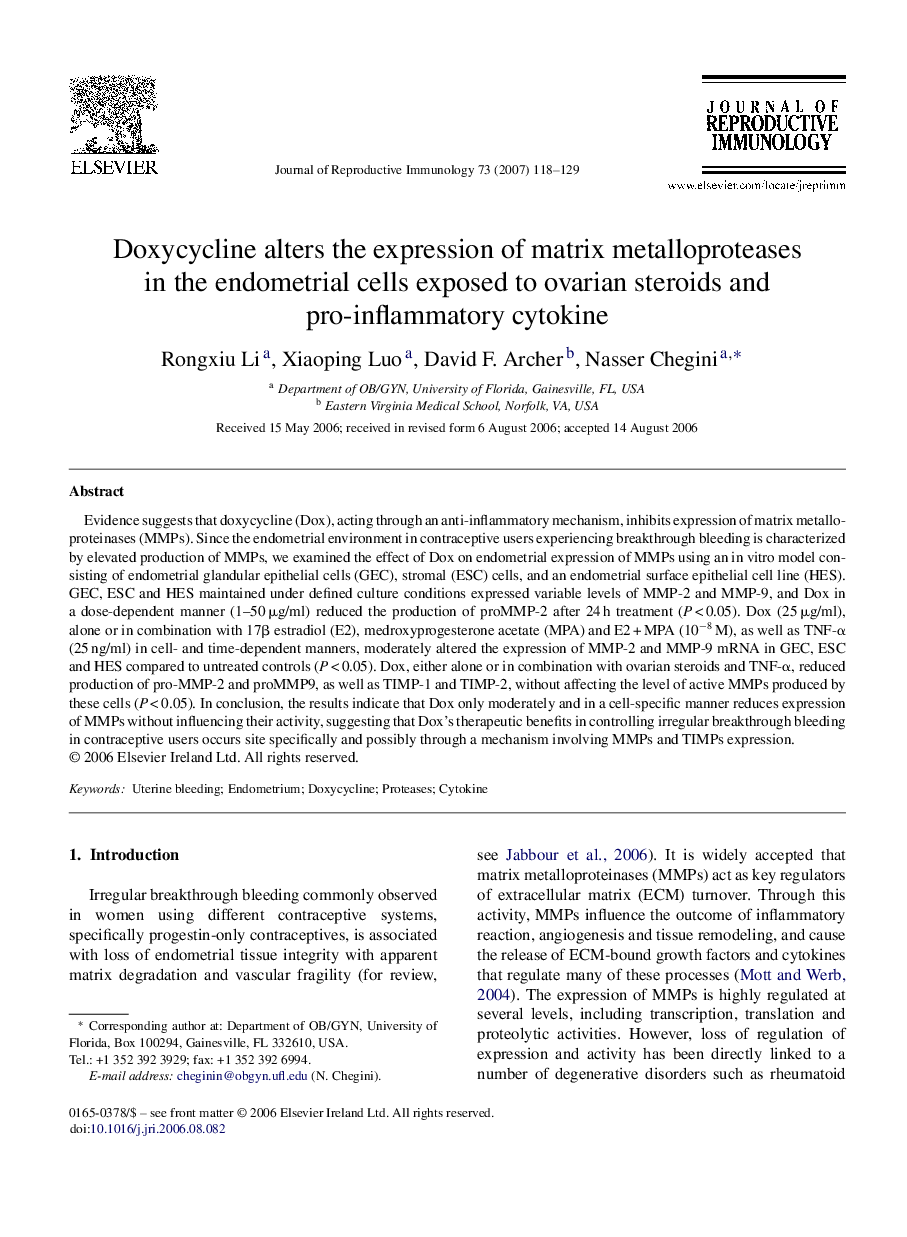| Article ID | Journal | Published Year | Pages | File Type |
|---|---|---|---|---|
| 3965975 | Journal of Reproductive Immunology | 2007 | 12 Pages |
Evidence suggests that doxycycline (Dox), acting through an anti-inflammatory mechanism, inhibits expression of matrix metalloproteinases (MMPs). Since the endometrial environment in contraceptive users experiencing breakthrough bleeding is characterized by elevated production of MMPs, we examined the effect of Dox on endometrial expression of MMPs using an in vitro model consisting of endometrial glandular epithelial cells (GEC), stromal (ESC) cells, and an endometrial surface epithelial cell line (HES). GEC, ESC and HES maintained under defined culture conditions expressed variable levels of MMP-2 and MMP-9, and Dox in a dose-dependent manner (1–50 μg/ml) reduced the production of proMMP-2 after 24 h treatment (P < 0.05). Dox (25 μg/ml), alone or in combination with 17β estradiol (E2), medroxyprogesterone acetate (MPA) and E2 + MPA (10−8 M), as well as TNF-α (25 ng/ml) in cell- and time-dependent manners, moderately altered the expression of MMP-2 and MMP-9 mRNA in GEC, ESC and HES compared to untreated controls (P < 0.05). Dox, either alone or in combination with ovarian steroids and TNF-α, reduced production of pro-MMP-2 and proMMP9, as well as TIMP-1 and TIMP-2, without affecting the level of active MMPs produced by these cells (P < 0.05). In conclusion, the results indicate that Dox only moderately and in a cell-specific manner reduces expression of MMPs without influencing their activity, suggesting that Dox's therapeutic benefits in controlling irregular breakthrough bleeding in contraceptive users occurs site specifically and possibly through a mechanism involving MMPs and TIMPs expression.
